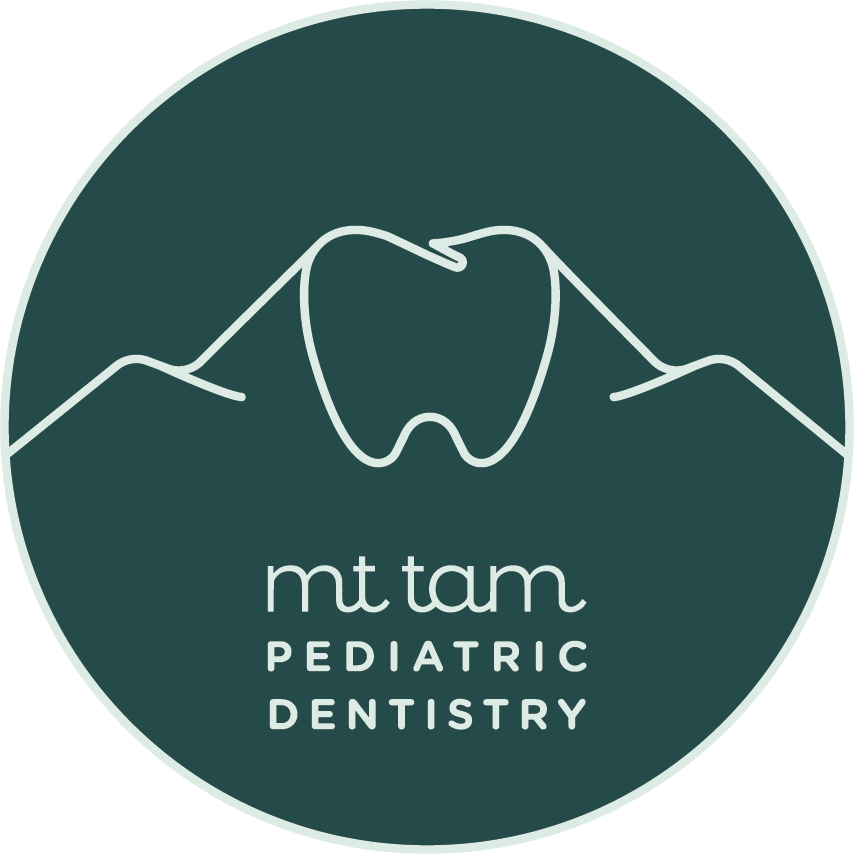When Should Your Children First See the Dentist?
Your child’s first visit to the dentist is a special moment. It’s similar to when they get their fist haircut, or go off to preschool/daycare for the first time. It’s something we all anticipate with mixed emotions, crossing our fingers for the best!
Your baby’s fist visit to the dentist should occur as close to age one as possible.The American Academy of Pediatric Dentistry recommends that a child visits the dentist once their first tooth comes in, and no later than age one. Studies show that the earlier a child has their first exam, the less dental treatment they need during their youth. And while there are exceptions for babies born with teeth or craniofacial abnormalities, generally speaking, if your child sees a dentist by their first birthday it helps with establishing good habits, early on. Starting with good habits is much easier than breaking bad ones later.
Additionally, Mt Tam Pediatric Dentistry, welcomes new and expecting parents! We can discuss what you can do starting at birth to help set your baby up for a lifetime of positive oral health.
Here are some common questions we get about your baby’s first visit:
What will the first visit be like? Check out our post, Your First Appointment: What to Expect to help understand what will happen, what will be discussed, and more. In brief, the dentist will examine the teeth, jaws, bite, gums, and oral tissues. Depending on your child’s tolerance they will also receive a gentle toothbrush cleaning or prophy cup polishing. This will help to remove any plaque, tartar, and staining. Instructions on how to care for your child’s teeth at home will also be reviewed, including proper brushing and flossing techniques. Your dentist will also advise on your child’s fluoride exposure, diet, habits, and trauma risk. If your child is old enough, and their teeth are touching, the dentist may recommend X-rays to evaluate areas they cannot see. X-rays may also be used to evaluate trauma. Your pediatric dentist will have child-sized equipment to aid in their comfort, and will use special techniques and equipment to minimizing your child’s exposure.
Isn’t one year old too young for a dental visit? Most babies have a few teeth by age one, so this is the perfect time to establish good habits and begin a relationship with the pediatric dentist and dental team. When babies come in around age one, the visit typically lasts 30 - 45 minutes. Your child will be able to interact with and observe their environment which starts developing a sense of comfort with the dental office and team. When a child becomes familiar with their environment, it helps to set the stage for future success. Dental caries (or cavities) is not only a transmissible bacterial infection, it’s also a chronic biobehavioral disease, which simply means your risk for getting a cavity is largely based on behaviors and habits. The good news is that an early shift in either can make a BIG difference in a children’s long term oral health!
What if my baby cries or does not cooperate for the dentist? Not to worry! Some babies will cry, some will feel right at home, and everything in between. Their reaction is largely based on their innate temperament and past experiences. Most pediatric dentists have seen a wide range of reactions and are prepared to respond appropriately. When you establish a “dental home” for your child at an early age, it will increase their comfort and cooperation as they get older. Our office design and communication style is meant to make children comfortable. We will adjust to your baby’s reaction, and guide you in assisting with their cooperation. By keeping the visit fun and the exam quick, we will show them that their “dental home” is a safe and fun place to visit.
What is the difference between a Pediatric Dentist and a Family Dentist? Pediatric dentists are the pediatricians of dentistry. A pediatric specialist receives two additional years of specialty training in managing and treating child-specific dental needs. A pediatric dentist only treats children, limiting their scope to seeing patients from birth through the adolescent years. Children typically transition to a general/family dentist during their late teenage years.
The goal of your child's first dental visit is for the dental team to get to know you and your kids. Let your dental team compliment you on the things you are doing well, and provide you with the information and tools you need for continued success. Maintaining optimum oral health is complex, and your dental team is here to guide and support!


